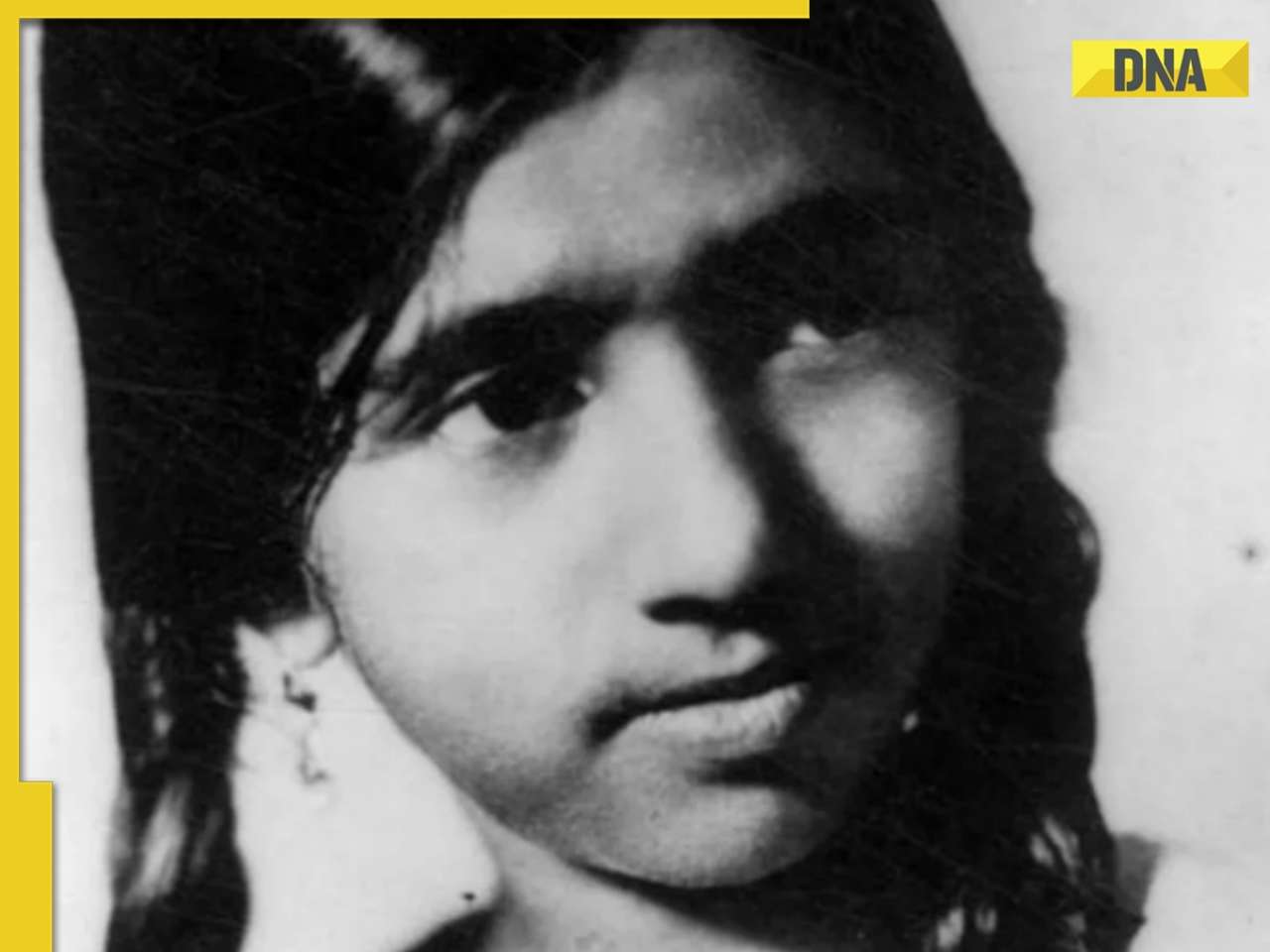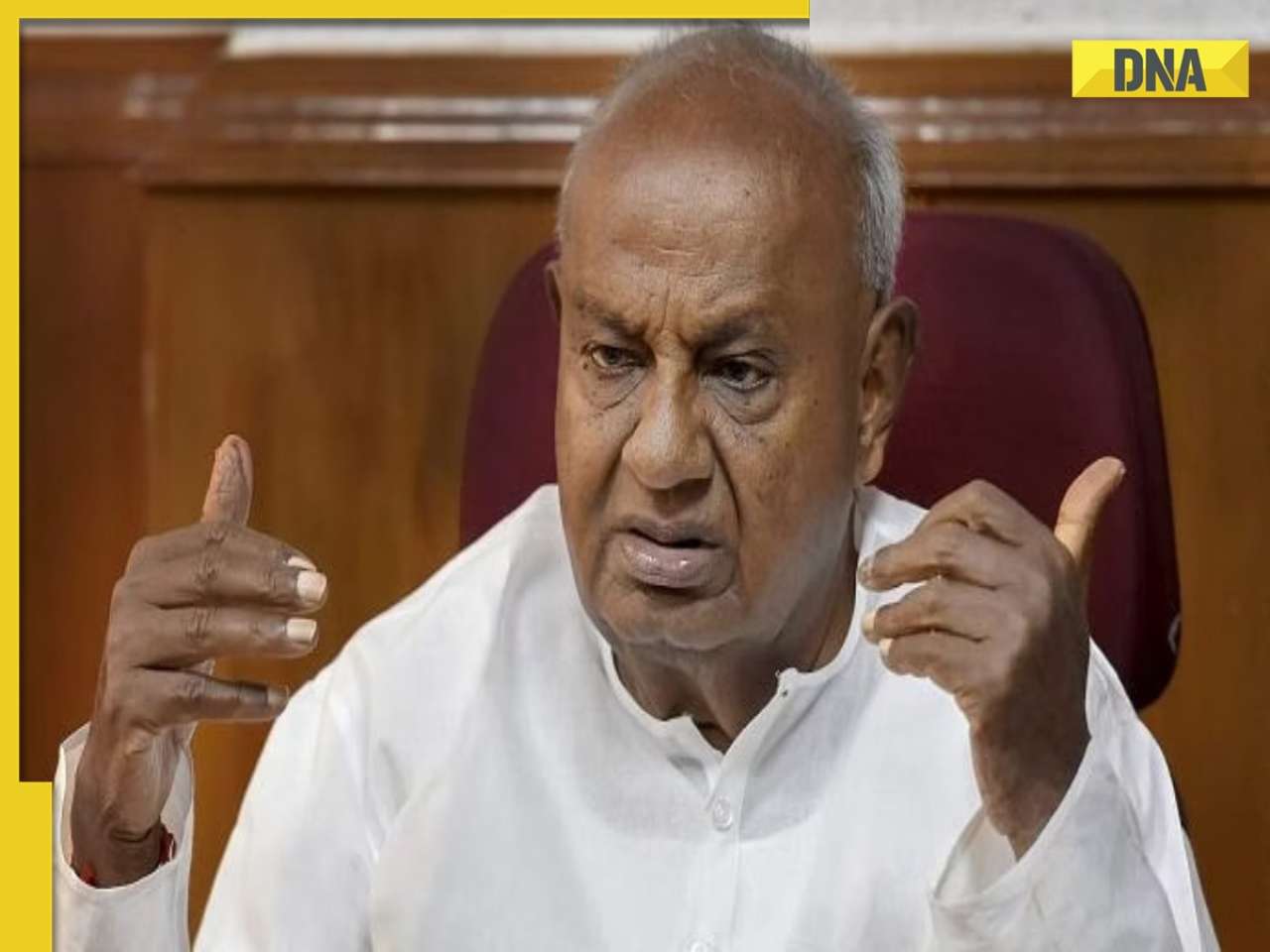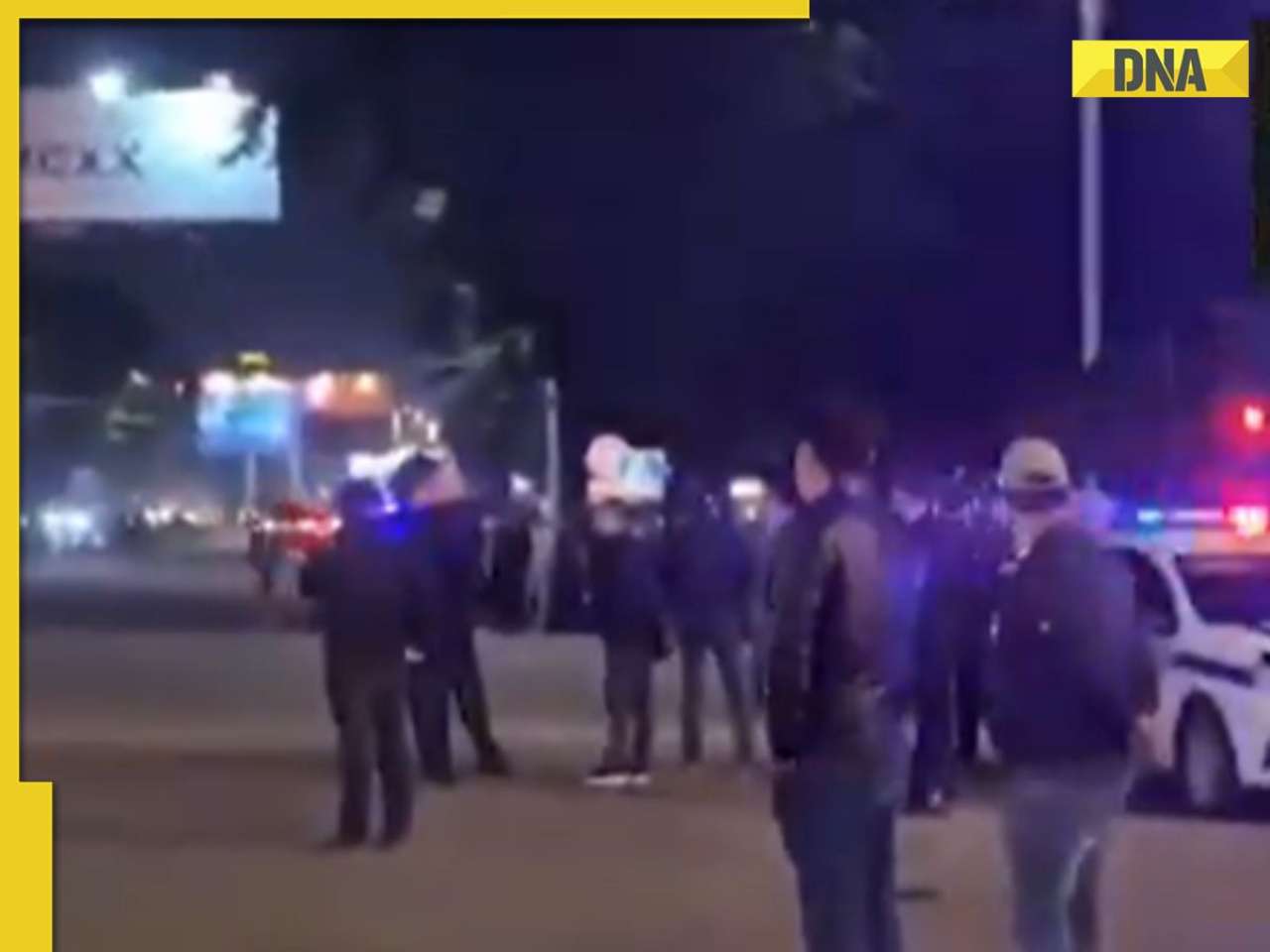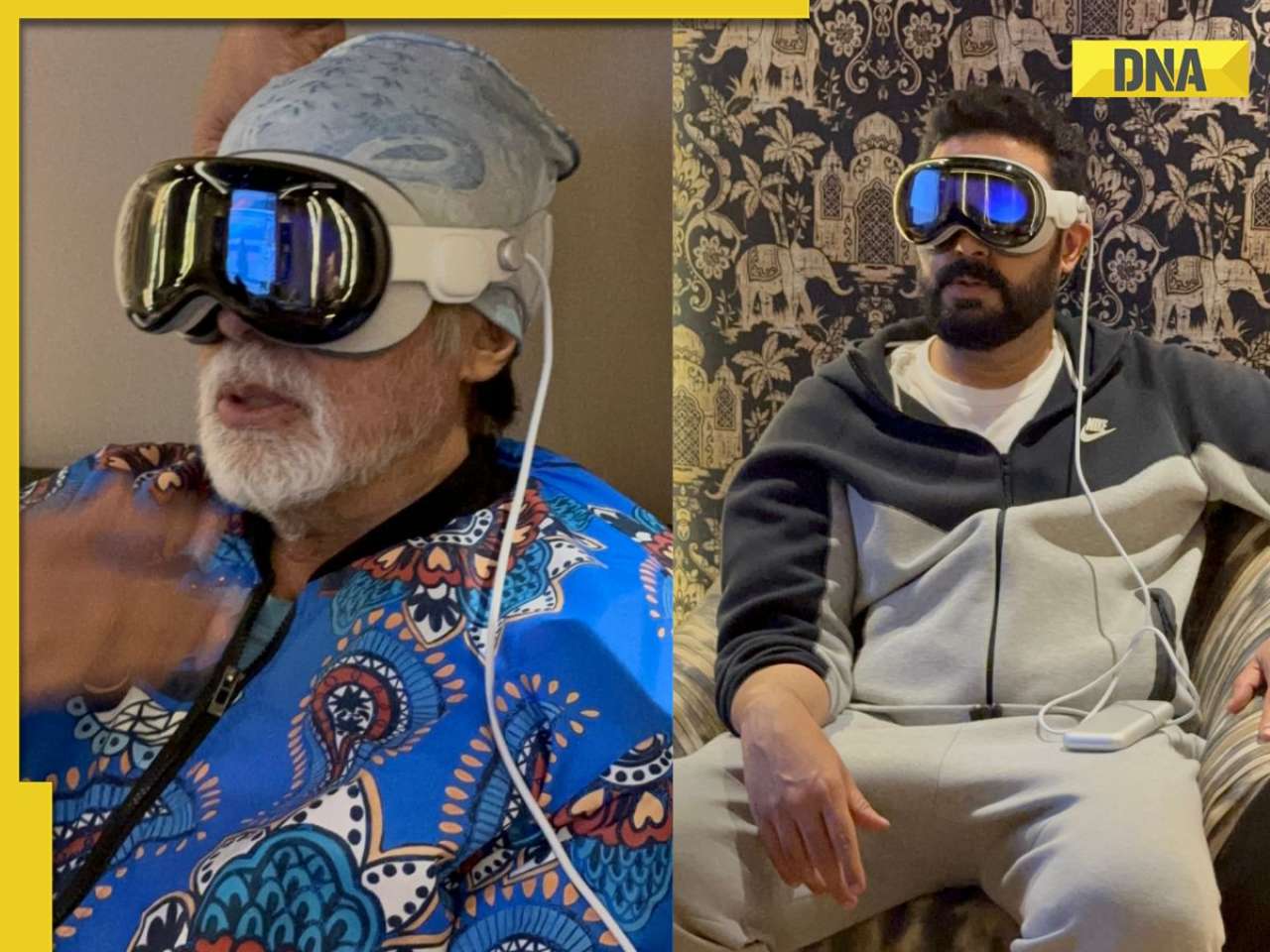Lok Sabha Speaker Somnath Chatterjee on Thursday adjourned the House abruptly as the Left and Opposition members, defying the chair, persisted with seeking clarifications on Prime Minister Manmohan Singh's statement on the situation in Lebanon.
NEW DELHI: Lok Sabha Speaker Somnath Chatterjee on Thursday adjourned the House abruptly as the Left and Opposition members, defying the chair, persisted with seeking clarifications on Prime Minister Manmohan Singh's statement on the situation in Lebanon.
The adjournment, till 1330 hrs, came at 1225 hours soon after Singh's statement, assuring the House that the safety of about 12,000 Indians, who were in Lebanon at the time of eruption of hostilities, were the prime concern of his government.
As soon as Singh was through with his suo motu statement lasting about 10 minutes, Basudeb Acharia and Rupchand Pal (both Communist Party of India-Marxist), Gurudas Dasgupta (Communist Party of India), Mr Yerran Naidu (Telugu Desam Party), Kharabela Swain (Bharatiya Janata Party) and several other non-treasury members were on their feet, seeking clarifications from the prime minister.
The Speaker ruled that nothing would go on record and told DV Sadananda Gowda (BJP) to raise the issue for which he had given notice.
The agitated Left, Samajwadi Party and opposition members were insisting on seeking clarifications.
''I shall allow a discussion. Move a motion. But I will not allow the practice of raising questions after a statement,'' the Speaker remarked and adjourned the House abruptly as the members refused to heed his advice.
India will extend aid of Rs 10 crore to humanitarian and relief efforts to rebuild war-ravaged Lebanon, Singh announced.
This was in response to an appeal issued by the Government of Lebanon, he told the Lok Sabha.
He demanded an immediate ceasefire to end the destruction in Lebanon and provide humanitarian assistance.
''All sides must immediately halt the violence and give diplomacy a chance,'' Singh said while pointing out that ''diplomacy to succeed should have a long-term solution that involves and addresses the legitimate concerns of all parties in the region, leading to a comprehensive and negotiated solution.''
Singh said India was seriously concerned about the escalation of conflict between Israel and the Hezbollah extending across the Lebanon-Israel border. ''West Asia is our extended neighbourhood and tension in that region affect our security and our vital interests.''
He said these developments had inflamed an already tense and delicate situation in the region.
On the allegation of members during Zero Hour on Wednesday that India was not prompt in its response to the West Asia crisis fearing ire from the United States, Singh said New Delhi had condemned the abduction of Israeli soldiers by the Hezbollah cadres and called for their immediate release.
Simultaneously, India had condemned in the strongest possible terms the excessive and disproportionate military retaliation by
Israel.
''We had particularly expressed concern that the actions of the Israeli defence forces had resulted in the killing and suffering of innocent civilians, including women and children, that is likely to exacerbate an already tense situation. We also condemn the attack that led to the death of four United Nations observers in Lebanon.''
The Opposition walked out of the Rajya Sabha demanding further discussion on the nuclear deal with the United States even as Prime Minister Singh assured the House that there was no violation of law and the entire process is yet to be completed by the US legislature.
The prime minister said he wanted to make it clear that he cannot influence the US legislative process. ''It is for the US government to come to a conclusion, while we perform our part of the bargain'',
Singh said in the Upper House during Question Hour.
He said the US legislative process on the nuclear deal with India is still on and any apprehension right now was ''baseless''.
The prime minister assured the House that whatever is taking place on the nuclear deal would be within the parameters of July 18, 2005 joint statement.
He said only if the end result of the US legislative process is not in tandem with the country's needs, then only will it be detrimental. ''We must have patience,'' the prime minister said.
He said the US legislative process is still on and India had adequate dialogue with the US on the issue on several occasions.
Former external affairs minister and BJP member Yashwant Sinha expressed fear that once the US legislative process is over, the ''goal posts will be shifted''. Not only would they be shifted but taken out of the field, he quipped.
Singh, however, asserted nothing of this sort would happen and the ''goal posts will be there''.
When SP member Amar Singh asked whether the House wanted a resolution on this issue, the Opposition said the prime minister should give a reply. ''The whole House wants a resolution on this issue,'' Amar Singh demanded.
Chairman Bhairon Singh Shekhawat, however, told the members to take their seat and said only supplementaries on the question on Safeguards Agreement with International Atomic Energy Agency could be asked.
Leader of the Opposition Jaswant Singh intervened and said the prime minister has cited the legislative process of the US as one of the inhibiting factors.
CPI(M) member Sitaram Yechury iterated that the House should honour the feeling of its members on a resolution. He recalled the July 29, 2005 suo motu statement in the house by the PM that ''we are committing ourselves to separating the military and civilian use of nuclear energy. This will be under the IAEA safeguards. India will now have to negotiate with the IAEA.
The prime minister said there has been no violations and requested the members to ''let the process be completed''.
Earlier, Minister of State for External Affairs Anand Sharma said India and IAEA have concluded an agreement requiring the application of IAEA's safeguards in accordance with its standards, principles and practices to India's civil nuclear facilities, materials and programmes.
He quoted the prime minister's statement in Parliament on July 29, 2005, ''Before voluntarily placing our civilian facilities under IAEA safeguards, we will ensure that all restrictions on India have
been lifted''.
The government continues to abide by that commitment, Sharma said.
![submenu-img]() This singer helped BCCI when it had no money to award 1983 World Cup-winning Indian cricket team, raised 20 lakh by...
This singer helped BCCI when it had no money to award 1983 World Cup-winning Indian cricket team, raised 20 lakh by...![submenu-img]() Virat Kohli’s new haircut ahead of RCB vs CSK IPL 2024 showdown sets internet on fire, see here
Virat Kohli’s new haircut ahead of RCB vs CSK IPL 2024 showdown sets internet on fire, see here![submenu-img]() BCCI bans Mumbai Indians skipper Hardik Pandya, slaps INR 30 lakh fine for....
BCCI bans Mumbai Indians skipper Hardik Pandya, slaps INR 30 lakh fine for....![submenu-img]() 'Justice must prevail': Former PM HD Deve Gowda breaks silence in Prajwal Revanna case
'Justice must prevail': Former PM HD Deve Gowda breaks silence in Prajwal Revanna case![submenu-img]() India urges students in Kyrgyzstan to stay indoors amid violent protests in Bishkek
India urges students in Kyrgyzstan to stay indoors amid violent protests in Bishkek![submenu-img]() Meet IIT graduates, three friends who were featured in Forbes 30 Under 30 Asia list, built AI startup, now…
Meet IIT graduates, three friends who were featured in Forbes 30 Under 30 Asia list, built AI startup, now…![submenu-img]() Meet woman who cracked UPSC in fourth attempt to become IAS officer, secured AIR...
Meet woman who cracked UPSC in fourth attempt to become IAS officer, secured AIR...![submenu-img]() Meet IIT JEE 2024 all-India girls topper who scored 100 percentile; her rank is…
Meet IIT JEE 2024 all-India girls topper who scored 100 percentile; her rank is…![submenu-img]() Meet PhD wife of IIT graduate hired at Rs 100 crore salary package, was fired within a year, he is now…
Meet PhD wife of IIT graduate hired at Rs 100 crore salary package, was fired within a year, he is now…![submenu-img]() Meet woman not from IIT, IIM or NIT, cracked UPSC exam in first attempt with AIR...
Meet woman not from IIT, IIM or NIT, cracked UPSC exam in first attempt with AIR...![submenu-img]() DNA Verified: Is CAA an anti-Muslim law? Centre terms news report as 'misleading'
DNA Verified: Is CAA an anti-Muslim law? Centre terms news report as 'misleading'![submenu-img]() DNA Verified: Lok Sabha Elections 2024 to be held on April 19? Know truth behind viral message
DNA Verified: Lok Sabha Elections 2024 to be held on April 19? Know truth behind viral message![submenu-img]() DNA Verified: Modi govt giving students free laptops under 'One Student One Laptop' scheme? Know truth here
DNA Verified: Modi govt giving students free laptops under 'One Student One Laptop' scheme? Know truth here![submenu-img]() DNA Verified: Shah Rukh Khan denies reports of his role in release of India's naval officers from Qatar
DNA Verified: Shah Rukh Khan denies reports of his role in release of India's naval officers from Qatar![submenu-img]() DNA Verified: Is govt providing Rs 1.6 lakh benefit to girls under PM Ladli Laxmi Yojana? Know truth
DNA Verified: Is govt providing Rs 1.6 lakh benefit to girls under PM Ladli Laxmi Yojana? Know truth![submenu-img]() Kiara Advani stuns in Prabal Gurung thigh-high slit gown for her Cannes debut, poses by the French Riviera
Kiara Advani stuns in Prabal Gurung thigh-high slit gown for her Cannes debut, poses by the French Riviera![submenu-img]() Heeramandi star Taha Shah Badussha makes dashing debut at Cannes Film Festival, fans call him ‘international crush’
Heeramandi star Taha Shah Badussha makes dashing debut at Cannes Film Festival, fans call him ‘international crush’![submenu-img]() Streaming This Week: Madgaon Express, Zara Hatke Zara Bachke, Bridgerton season 3, latest OTT releases to binge-watch
Streaming This Week: Madgaon Express, Zara Hatke Zara Bachke, Bridgerton season 3, latest OTT releases to binge-watch![submenu-img]() Sunanda Sharma exudes royalty as she debuts at Cannes Film Festival in anarkali, calls it ‘Punjabi community's victory’
Sunanda Sharma exudes royalty as she debuts at Cannes Film Festival in anarkali, calls it ‘Punjabi community's victory’![submenu-img]() Aishwarya Rai walks Cannes red carpet in bizarre gown made of confetti, fans say 'is this the Met Gala'
Aishwarya Rai walks Cannes red carpet in bizarre gown made of confetti, fans say 'is this the Met Gala'![submenu-img]() Haryana Political Crisis: Will 3 independent MLAs support withdrawal impact the present Nayab Saini led-BJP government?
Haryana Political Crisis: Will 3 independent MLAs support withdrawal impact the present Nayab Saini led-BJP government?![submenu-img]() DNA Explainer: Why Harvey Weinstein's rape conviction was overturned, will beleaguered Hollywood mogul get out of jail?
DNA Explainer: Why Harvey Weinstein's rape conviction was overturned, will beleaguered Hollywood mogul get out of jail?![submenu-img]() What is inheritance tax?
What is inheritance tax?![submenu-img]() DNA Explainer: What is cloud seeding which is blamed for wreaking havoc in Dubai?
DNA Explainer: What is cloud seeding which is blamed for wreaking havoc in Dubai?![submenu-img]() DNA Explainer: What is Israel's Arrow-3 defence system used to intercept Iran's missile attack?
DNA Explainer: What is Israel's Arrow-3 defence system used to intercept Iran's missile attack?![submenu-img]() This singer helped BCCI when it had no money to award 1983 World Cup-winning Indian cricket team, raised 20 lakh by...
This singer helped BCCI when it had no money to award 1983 World Cup-winning Indian cricket team, raised 20 lakh by...![submenu-img]() This film had 3 superstars, was unofficial remake of Hollywood classic, was box office flop, later became hit on...
This film had 3 superstars, was unofficial remake of Hollywood classic, was box office flop, later became hit on...![submenu-img]() Meet Nancy Tyagi, Indian influencer who wore self-stitched gown weighing over 20 kg to Cannes red carpet
Meet Nancy Tyagi, Indian influencer who wore self-stitched gown weighing over 20 kg to Cannes red carpet![submenu-img]() Telugu actor Chandrakanth found dead days after rumoured girlfriend Pavithra Jayaram's death in car accident
Telugu actor Chandrakanth found dead days after rumoured girlfriend Pavithra Jayaram's death in car accident![submenu-img]() Meet superstar who faced casting couch at young age, worked in B-grade films, was once highest-paid actress, now..
Meet superstar who faced casting couch at young age, worked in B-grade films, was once highest-paid actress, now..![submenu-img]() Viral video: Flood-rescued dog comforts stranded pooch with heartfelt hug, internet hearts it
Viral video: Flood-rescued dog comforts stranded pooch with heartfelt hug, internet hearts it![submenu-img]() Dubai ruler captured walking hand-in-hand with grandson in viral video, internet can't help but go aww
Dubai ruler captured walking hand-in-hand with grandson in viral video, internet can't help but go aww![submenu-img]() IPL 2024: Virat Kohli drops massive hint on MS Dhoni’s retirement plan ahead of RCB vs CSK clash
IPL 2024: Virat Kohli drops massive hint on MS Dhoni’s retirement plan ahead of RCB vs CSK clash![submenu-img]() Do you know which God Parsis worship? Find out here
Do you know which God Parsis worship? Find out here![submenu-img]() This white marble structure in Agra, competing with Taj Mahal, took 104 years to complete
This white marble structure in Agra, competing with Taj Mahal, took 104 years to complete

























































)
)
)
)
)
)